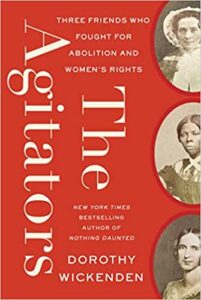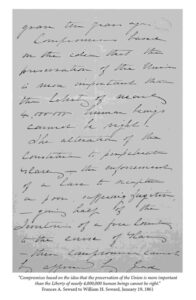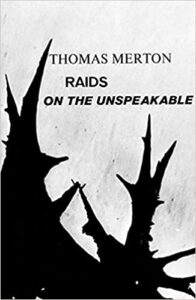Frances Seward
Abolition, Women’s Rights & America’s 2nd Revolution
May 7, 2021From the intimate perspective of three friends and neighbors in mid-nineteenth century Auburn, New York—the “agitators” of the title—acclaimed author Dorothy Wickenden tells the fascinating and crucially American stories of abolition, the Underground Railroad, the early women’s rights movement, and the Civil War.
Harriet Tubman was one of the most important conductors on the underground railroad and hid the enslaved men, women and children she rescued in the basement kitchens of Martha Wright, Quaker mother of seven, and Frances Seward, wife of Governor, then Senator, then Secretary of State William H. Seward.
Many of the most prominent figures in the history books—Lincoln, Seward, Daniel Webster, Frederick Douglass, Charles Sumner, John Brown, Harriet Beecher Stowe, William Lloyd Garrison—are seen through the eyes of the protagonists. So are the most explosive political debates: about women’s roles and rights during the abolition crusade, emancipation, and the arming of Black troops; and about the true meaning of the Declaration of Independence and the Constitution.
Beginning two decades before the Civil War, when Harriet Tubman was still enslaved and Martha and Frances were young women bound by law and tradition, The Agitators ends two decades after the war, in a radically changed United States. Wickenden brings this period of our history to life through the richly detailed letters her characters wrote several times a week. Like Doris Kearns Goodwin’s Team of Rivals and David McCullough’s John Adams, Wickenden’s The Agitators is revelatory, riveting, and profoundly relevant to our own time. [Amazon]
The New Yorker Radio Hour
“The Agitators” is a book about three women—three revolutionaries—who changed the world at a time when women weren’t supposed to be in public life at all. Frances Seward was a committed abolitionist who settled with her husband in the small town of Auburn, in western New York. One of their neighbors was a Quaker named Martha Coffin Wright, who helped organize the first convention for women’s rights, at Seneca Falls. Both women harbored fugitives when it was a violation of federal law. And, after they met Harriet Tubman, through the Underground Railroad, Tubman also settled in Auburn. “The Agitators,” by The New Yorker’s executive editor, Dorothy Wickenden, tells their interlocking stories. “These people were outsiders, and they were revolutionaries,” Wickenden tells David Remnick. “They were only two generations separated from the Declaration of Independence, which they believed in literally. They did not understand why women and Black Americans could not have exactly the same rights that had been promised.”
Thomas Merton:
‘You can easily guess that in using the term “innocent bystander” I had to examine my conscience to see whether I was being facetious. I do not remember if I smiled when I first thought of it; but, in any case, I am no longer smiling. For I do nothing the question of our innocence can be a matter for jesting, and I am no longer certain that it is honorable to stand by as the helpless witness to a cataclysm, with no other hope than to die innocently and by accident, as a nonparticipant.’
[Raids one the Unspeakable]


